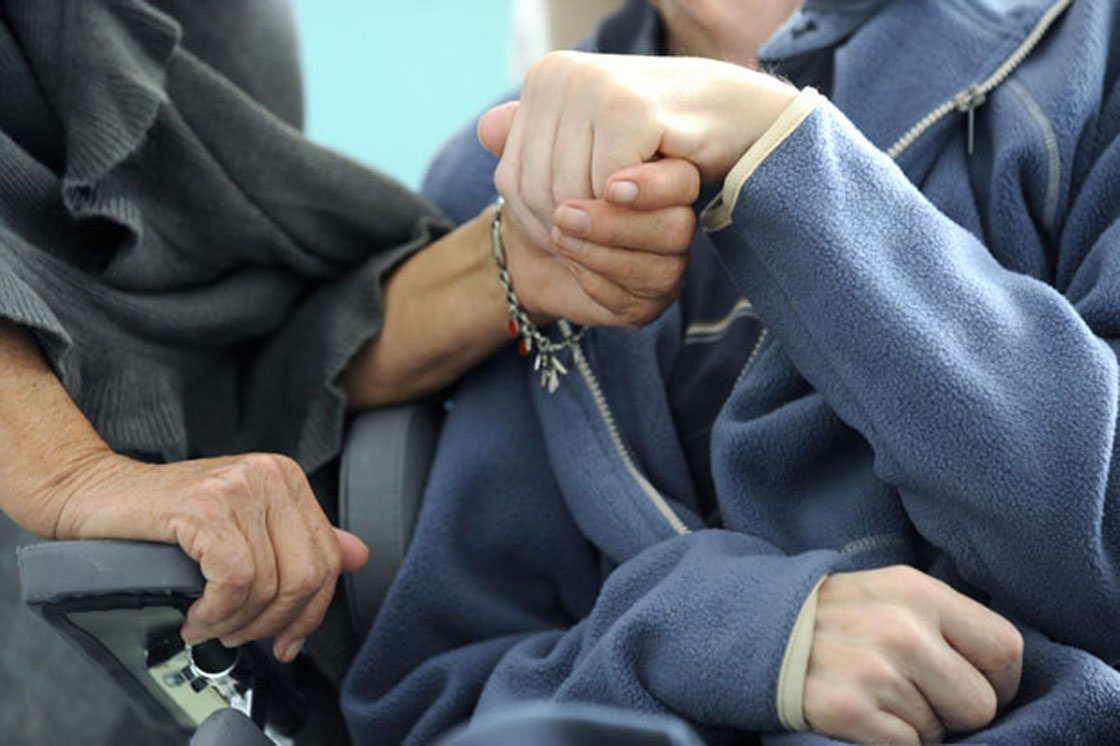TORONTO — When Dorina Vendramin’s parents decided to go on vacation to Cuba, she scanned her father’s photo to prepare missing person posters, created emergency phone lists and reached out to local police on the tiny Caribbean island.

Her 81-year-old father, Giuseppe, was diagnosed with Alzheimer’s disease in the late 1990s. That prognosis changed her family’s life.
While her dad is now in long-term care in Toronto, Vendramin and her mother still worry about his safety constantly. Patients with the condition could get confused or disoriented with their surroundings and wander away.
“It’s constant, it’s 24 hours a day,” Vendramin told Global News of how the possibility of her father getting lost weighs on her mind.
But Vendramin is prepared: she briefed neighbours of her father’s condition, safe-proofed her parents’ home with alarms on the doors and gates to block stairways. Giuseppe wears a MedicAlert bracelet with his personal identification number and details of his condition and medications he may need.
These measures offer Vendramin and her family some peace of mind, but from her experience volunteering with her local Alzheimer Society, she knows some households with family members suffering from dementia aren’t planning as carefully.
“They say it’s old age and they don’t want to think it’s a real disease,” she explained.
New program targets several ethnic groups
On Wednesday, the Alzheimer Society of Ontario launched a new wandering prevention program called Finding Your Way acknowledging this issue. It’s the first of its kind in reaching out to multicultural communities.
A new website www.findingyourwayontario.ca offers interactive information to families coping with dementia in their households. The site includes safety kits, checklists and how to prepare for and handle emergency situations.
“It’s an important issue right now because of the growing number of people with dementia in the community,” David Harvey, the society’s chief public policy and programs initiatives officer, told Global News in an interview.
Accepting dementia in a family member is also difficult depending on the ethnic group, too, Harvey notes.
“The stigma is more profound in some cultures,” Harvey said.
“We’re reaching out to the non-English speaking groups in a special way because they may not have the access to information that’s available through the media or through other mainstream languages.
Across the Greater Toronto Area, the program is offered in English, French, Punjabi and two Chinese dialects.
Multilingual print, radio and television spots will all make the rounds in the media, hoping to shed light on the issue among different cultural groups.
Vendramin says the campaign and online tools could help some who want to take care of their family behind closed doors and without help.
“They’ll have somewhere to go. They can print checklists and information online for people who feel weird about it,” she said.
So far, the program has rolled out in Ontario but it could spread to other provinces.
Ontario seems to spearhead most campaigns that then seep into the rest of the country, Harvey noted.
Three-pronged approach to raising awareness
The program is meant to reach out to those with dementia and their family, first and foremost.
The website helps families set up a personal ID page with a recent photo and description of their family member.
Then society officials want to branch out to the broader community, making sure residents know what to do if they come across a person with dementia who is lost.
Finally, police are also taking part in the project. The society already collaborates with the Ontario Police College and the Ontario Provincial Police, but new videos and training tools will be available to these groups of officers.
That information will help officers learn how to approach a patient with dementia who is forlorn, for example.
Alzheimer’s and dementia in Canada
The campaign comes at a pivotal time, when rates of dementia are projected to steadily climb, Harvey said.
Canadian statistics show that three out of five people with dementia will go missing at some point.
Half of those people who go missing for 24 hours risk serious injury or even death from exposure, hypothermia or drowning.
Meanwhile the majority – 94 per cent – of those who wander from home are found just 1.5 miles away.
“This is something all of us need to understand. Please take this issue seriously… and if family members see that somebody has gone missing, then they should not hesitate to call police,” he said.
By 2012, about 200,000 seniors in Ontario – or one in 10 – will have dementia, the society estimates.




Comments